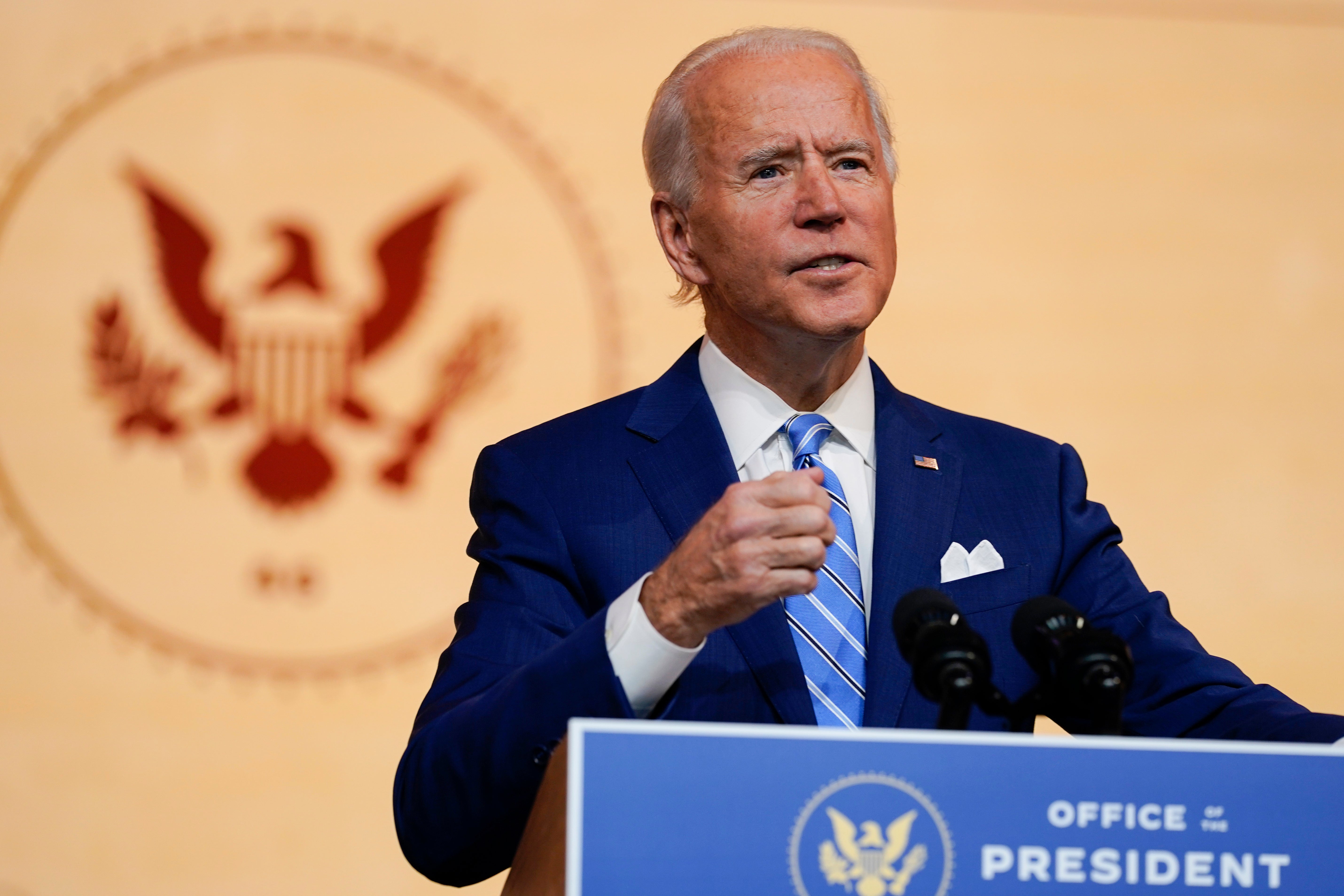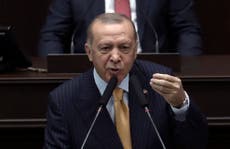America’s stance on human rights and democracy has a global impact – Biden must restore credibility
During the last four years, dictators worldwide gained ever greater latitude for their abuses so long as they maintained good relations with the White House, writes Borzou Daragahi


I was ambivalent about the first US election that took place when I was old enough to vote. What difference would it make if Michael Dukakis or George HW Bush became president?
A friend took me to task. If Bush were elected, he said, death squads in Latin America would run more rampant. Murderous governments throughout the world would feel more secure and emboldened. “More innocent people will die,” he said.
American advocacy of human rights and democracy has long been laced with a heavy dose of hypocrisy. During the Cold War, the US highlighted abuses by Soviet and pro-Moscow nations, while ignoring and often even supporting violent repression by its own allies, all in the name of combatting the Communist menace.
At home, African-Americans demanding civil rights were brutally assaulted and teargassed by security forces and allied white supremacist terrorists, even as Washington condemned the violent crushing of democratic uprisings in eastern Europe.
Still, over the decades, the gap between America’s ideals and practices has narrowed. And whether friend or foe – from Tehran to Beijing; Riyadh to Brussels – the White House’s stance on global democratic norms has an impact.
Generally, Democrats have been more consistent on issues of human rights and democracy than Republicans, who tend to cozy up to dictators and more blatantly overlook abuses by allies. But under the leadership of soon-to-be ex-president Donald Trump and the secretary of state, Mike Pompeo, the chasm between America’s rhetoric and its actions widened dramatically.
President-elect Joe Biden has a chance to change that, and restore some semblance of credibility to America’s words, helping to expand human rights and promote democratic values. Improving on Trump will be easy. His very first act was to institute a discriminatory Muslim travel ban that Biden has promised to remove on day one. Trump is the guy who fires off angry tweets about abuses of the death penalty in Iran and suppression of opposition members in Venezuela, while angling to restore death-by-firing squad in America and locking migrant children in cages.
He launched missiles to punish Syria for its use of chemical weapons against civilians, while providing military support and diplomatic cover for his autocratic friends in the Arabian Peninsula to bomb civilians in Yemen.
He colluded with Saudi Crown Prince Mohammed bin Salman to prevent any meaningful US retribution for the abduction, torture, murder, and dismemberment of Washington Post journalist Jamal Khashoggi, a death that should haunt both the young heir-to-the-throne and the ageing lame duck until their final days.
Pompeo’s flatulent arrogance and obnoxious self-regard seems to have no limits. He barked about abuses by Iran, China, and Venezuela, while obsequiously bending the knee in supplication before the tyrannical rulers of Saudi Arabia, the United Arab Emirates, and Egypt.
During the last four years, dictators worldwide gained ever greater latitude for their abuses so long as they maintained good relations with the White House, which repeatedly made it clear it didn’t give a damn. “[Trump’s] predecessors used their bully pulpit to champion universal liberties enshrined in America’s founding documents,” Stewart Patrick, a political scientist at the Council on Foreign Relations, wrote in World Politics Review. “He is just a bully, drawn to other bullies.”
Faltering democracies like Brazil, Hungary, India and Turkey slipped deeper towards autocracy. Authoritarian thugs like Egypt’s Abdel-Fattah el-Sisi crushed dissenters. More people died, or rotted in prison.
“Dictators are toiling to stamp out the last vestiges of domestic dissent and spread their harmful influence to new corners of the world,” said a report by the Washington-based Freedom House, which has chronicled a years-long retreat of democratic norms in the US and across the world. “At the same time, many freely elected leaders are dramatically narrowing their concerns to a blinkered interpretation of the national interest.”
Even as Trump wraps up his tenure, authoritarians and bullies across the world – whether in Saudi Arabia, Egypt, Turkey, Israel, Ethiopia, or Belarus – appear to be rushing to settle scores, launching waves of arrests, swiping new lands, and starting fresh wars.
US allies in Europe who have been championing democratic values and the cause of human rights are among the most relieved at Biden’s election. “Welcome back America!” Paris mayor Anne Hidalgo wrote on Twitter after Trump’s defeat.
But now Biden’s hard task of restoring some semblance of American credibility begins. By addressing the systematic racism that bedevils the United States during his campaign and naming Kamala Harris, a person of colour and a child of first-generation immigrants, as his running mate, Biden has already taken a step toward closing the gaping disparities between the promise and reality of America.
But reducing the toxic legacy of American white supremacy that came to the fore following the brutal strangulation of George Floyd by a white policeman will require more.
One step could be launching an effort at demilitarising law enforcement agencies and maintaining a database that chronicles the number of times officers of the law use deadly force. Biden has also called for reforming the disparities in criminal justice and education and doing away with extraordinary voter suppression tactics by political parties that make America a laughing stock of other democracies.
Biden will also need to zero in on the abuses of US allies. That means applying meaningful pressure on countries like Saudi Arabia, Egypt, Bahrain and Israel to stop jailing dissidents, brutalising minorities, and breaking international law. That also means pressuring countries like Brazil and Nato members like Hungary, Poland, and Turkey, which have stripped away citizens’ rights and destroyed the independent press, while maintaining chummy relations with Washington.
They should be warned that how they treat their own people matters when it comes to trade and diplomacy. Biden has already called for an international summit next year to reinvigorate global efforts to support democracy and advance human rights; watch closely to see who gets an invitation and who doesn’t.
Finally, and perhaps most complicated, Biden needs to end the wars, which he promised to do as part of his platform. He has vowed to “reaffirm” America’s ban on torture and restore “greater transparency” in military operations. But that’s not enough.
The US can only truly show the world it has become a responsible international player when it wraps up its armed interventions in the Middle East and Afghanistan, responsibly withdraws troops, and brings an end to its targeted drone strikes in all but the most extreme cases.
Washington’s pursuits abroad can be brutal, hypocritical, and callous. But it’s better to have a Washington that struggles to live up to its ideals than one that explicitly gives the world’s autocrats, fascists and bullies a thumbs-up. Both American citizens and those abroad can push it to live up to its propaganda. The last four years have shown that blithely rejecting America’s role in promoting democracy and human rights worldwide is no answer. It just means more innocent people will die.





Join our commenting forum
Join thought-provoking conversations, follow other Independent readers and see their replies
Comments